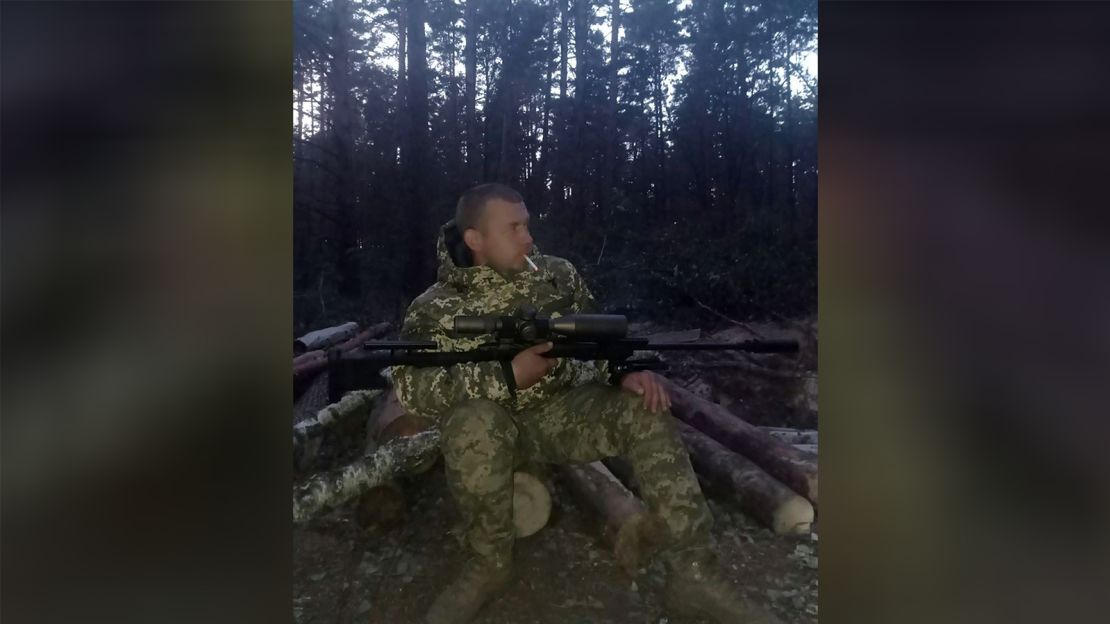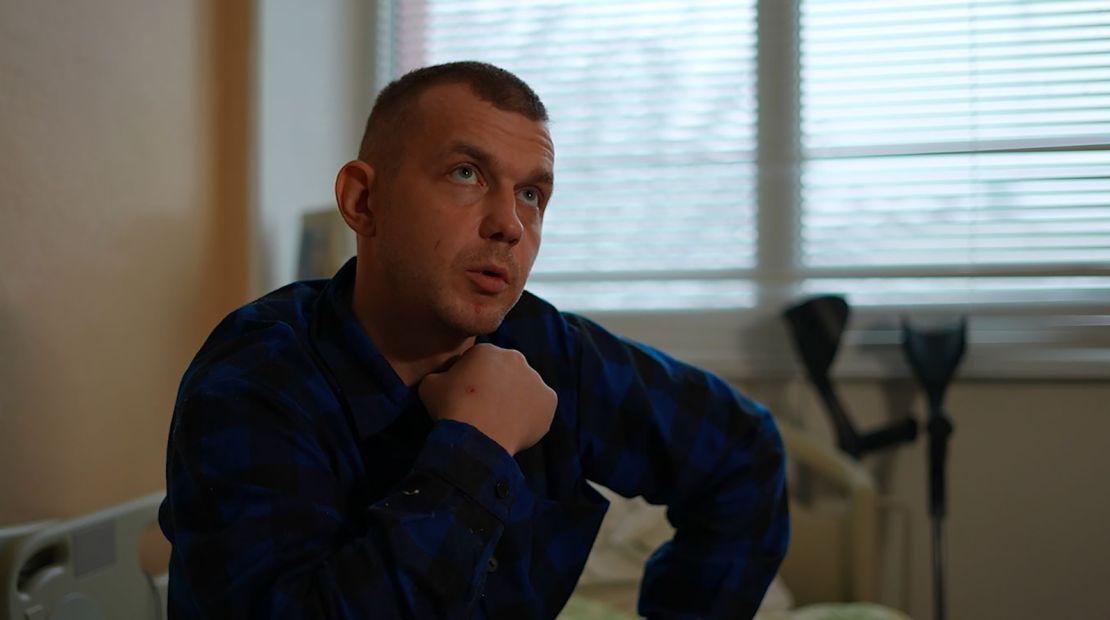
This article is more than
2 year old
“I can’t believe that now I’m in the hospital, not in the trench. I did not think I would survive,” says the 36-year-old.
Serhii is an infantryman in the 80th Air Assault Galician Brigade. He joined the army soon after Russia invaded Ukraine in February 2022, leaving Finland where he had been living and working as a handyman for the previous 10 years to enlist. In a nod to his past, he was given the call sign “Fin.”
A month ago, on October 27, he and his unit were assigned a mission - to hold the trenches on the eastern front line on the outskirts of Bakhmut. That mission was supposed to last three days but stretched into two weeks after the unit became pinned down by enemy fire. For some of the men it would be the last mission they ever saw.
The unit had been under constant shelling for several days when a mortar exploded near to the dugout containing Serhii and two other men, cutting the group off just as they were about to move position.
“We were all wounded. I was wounded in both legs and immediately touched them to check whether they were still there,” Serhii recalled.

The other two soldiers had broken legs and jaws. One of them was so shocked that he asked to kill himself, so the others took his weapon away. When the evacuation team arrived, Serhii insisted they take the other men first and that he would wait for the next opportunity.
But that opportunity never came. Whenever other units arrived, constant Russian bombardment kept them pinned down and unable to reach Serhii.
Multiple evacuation teams would try to reach Serhii over the next two weeks, but none could get through and some died trying.
“We were under constant enemy fire. The enemy seemed to be looking for our weaknesses or testing our endurance,” he recalled.
With Serhii confined to his trench, his commander used a drone to drop off essentials to him such as water, painkillers, chocolate bars, and even cigarettes.
“The water was a big problem because, first, the drone could not pick up big bottles of water. So the drone dropped small bottles wrapped in paper and tape, but not every bottle could survive (the fall) and they often broke. Water was leaking out. I appreciated every sip of water,” Serhii said.
At the same time, Russian drones were targeting the dugout with more sinister payloads, one of them dropping a grenade right next to Serhii, who by this point had been joined by another Ukrainian soldier who had become cut off.
“It exploded near the other soldier’s back and half a meter from me, near my feet. We were wounded but lucky to survive. It was possible to evacuate only one critically injured soldier. So at that moment I realized I was alone.”

Surrounded
For the next three days Serhii hid in his dugout surrounded by the enemy. Each hour Russian troops came closer and closer to his position. He could hear their voices and knew their plan.
Believing that he would not survive, Serhii contacted his commander on the radio and whispered to him the coordinates of the enemy - essentially calling in artillery strikes on his very own position.
Thanks to Serhii, Ukrainian artillery conducted several accurate strikes, but more Russian soldiers continued to take up positions around him.
“I was surrounded by enemies,” Serhii explained. “When they couldn’t hear me, I whispered the coordinates again on the radio and our artillery fired at them.”
At one point, Serhii thought his time was up when a Russian soldier climbed into his dugout. The soldier asked Serhii where he was from and the Ukrainian replied in Russian that he had a concussion and asked for water. The Russian soldier did not give him water but crawled out of the trench, apparently still unaware Serhii was Ukrainian.
“I still can’t understand how he didn’t realize I was from the Ukrainian armed forces. I was wearing a Ukrainian uniform. My pants were in pixels. Yes, they were dirty. But it was obvious that the boots were Ukrainian,” Serhii recalled.
With all efforts to evacuate Serhii exhausted, his commander eventually told him the only way out was to crawl and pray.
“I had to crawl through the dugout where Russians were. Holding the radio in my left hand on my knees, I started crawling. I came across a tripwire with a grenade on it. I could hear the commander on the radio correcting me, but I could not contact him myself. The battery was almost dead. The commander shouted at me that I should move. So, finally I got to the Ukrainian positions, ‘Fin, keep moving,’ they kept telling me.”

Serhii has now been recovering for more than two weeks. Sitting in the warm hospital ward, he remembers how he licked rainwater from his trench and would dream about every sip.
Telling his story to CNN, Serhii sees nothing heroic in his actions.
“You should see what our guys are doing on the front line. How they fight, evacuate, and rescue their dudes. Our guys are paying a very high price. They pay with their blood. All I want is to do is go fishing with my dudes, drink some beers and sit in silence”.